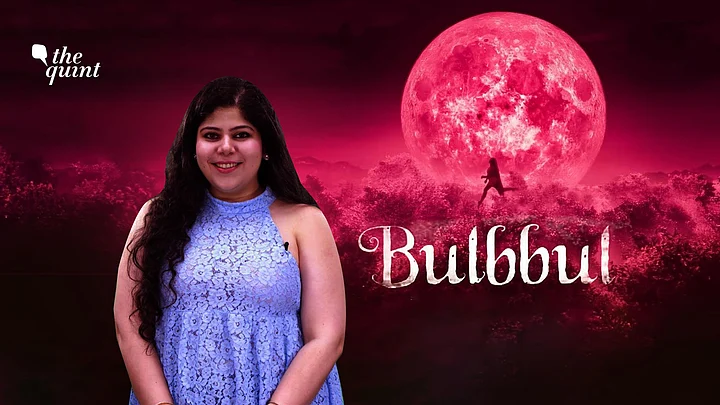Clean Slate Films, founded by Anushka Sharma and her brother Karnesh, has a knack of backing projects with a distinct feminist tone - from NH 10 to Paatal Lok and even the latest Netflix original Bulbbul. Also, Anushka Sharma’s penchant for the supernatural is equally evident. From the friendly ghost in Phillauri, the scary supernatural presence in Pari to the feminine power as the mainstay in this period film, there definitely is a range to the characters.
What one must expressly state is that Bulbbul isn’t a horror film with its staple jump scare moments and pulling the rug from under our collective feet at an opportune time. If that’s what you are expecting be prepared to be disappointed.
It a film that lures the supernatural and has a hypnotic quality to it.
Click on the player below for the podcast.
The first thing that strikes us about Bulbbul is how visually striking it is. The frames exude a mysterious hue… from rich crimson to an enigmatic purple. The shadow play, foreboding tone and Siddharth Diwan’s brilliantly tactile cinematography - everything adds to the eerie ambience. The year is 1881 in Bengal Presidency. We are introduced to a child bride Bulbbul. On her journey back to her husband’s home she is regaled with a story about a chudail (witch) who is waiting to gobble up a young princess. Anish John’s sound design and Amit Trivedi’s music subtly and assuredly weaves its magic.
The imperceptible presence of the supernatural accompanies us throughout as we realise Bulbbul’s fate is sealed.
Writer-director Anvita Dutt weaves a tale about patriarchy and the insidious ways it holds everyone captive. Bulbbul and the skewered power equation between her much-older husband Indranil (Rahul Bose) is the crux of the narrative. We also see the damning effect that Bulbbul’s brother-in-law and sister-in-law (Paoli Dam) have on her. The intimacy she shares with Satya (Avinash Tiwary), who is the only one she can talk to and the delicate friendship she shares with Doctor Sudip (Parambrata Chatterjee) make for a fascinating watch.
The trauma that Bulbbul undergoes leaves an indelible mark on her and poignant scenes reveal a telling tale. In one particular scene after a very violent episode, Binodini comes in to pacify Bulbbul but what she in turn does is regurgitate what probably she herself was told when faced with a similar dilemma. It’s a striking scene where we see the perpetrator as also a victim and realise there are no clear demarcations. But Dutt’s screenplay remains placid. We know what is to follow, there are hardly any surprises in store and the narrative remains devoid of exciting plot twists. But it’s the way the film is crafted that one finds it difficult to abandon it.
Rahul Bose , Parambrata Chatterjee, Avinash Tiwary and Paoli Dam give their characters a credible potency. Tripti Dimri has a few scenes where she displaces varied emotions but mostly the “I know it all smile” that she sports throughout appears alluring at first but then feels a little forced and inadequate.
One of the questions that the film throws up and doesn’t answer is if the binary between being a devi or a chudail is the only recourse that feminine power has to navigate in this patriarchal set up. No easy answers in sight but nevertheless a visually appealing film.
Our rating: 3 quints out of 5
(At The Quint, we question everything. Play an active role in shaping our journalism by becoming a member today.)
